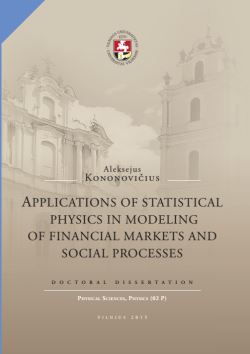Voter model
In 1973 two British scientists proposed an elementary model of spatial conflict between two distinct species [1]. The results of this model were heavily dependent on the dimensionality of the topology on which modeling occurred, which was rather interesting phenomenon at that time. In contemporary science this model is rather popular, thought now it is known as the voter model. This text discusses the simplest version of the model.

